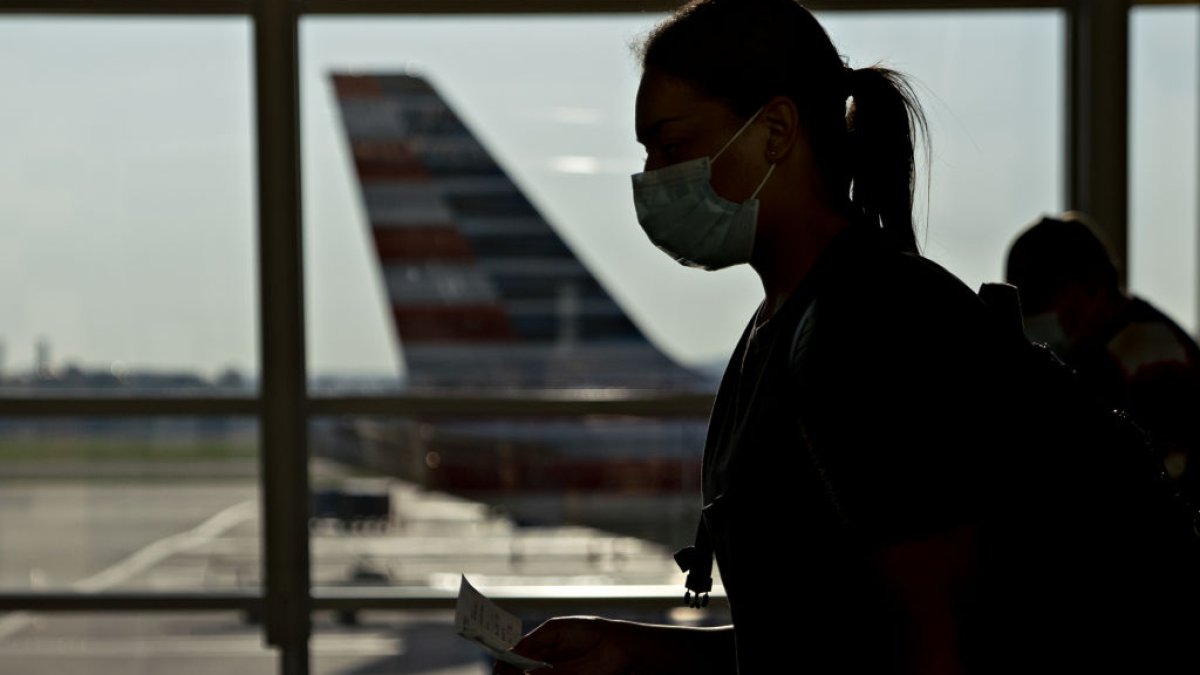
Chicago issued an emergency travel order Thursday directing anyone who visits one of 15 states in the U.S. currently experiencing a rise in coronavirus cases to quarantine for 14 days.
What to Know
- The city's travel order currently includes 18 total states and is updated every Tuesday
- City officials say they continue to "closely monitor" the spread of COVID-19 in other regions
- Wisconsin's case rate is "very close" to the cutoff for being added, the city says
Wisconsin's increase in coronavirus cases puts it "very close" to the cutoff at which Chicago officials would add the state to its emergency travel order requiring anyone entering or returning to the city from more than a dozen states to quarantine for two weeks.
Chicago officials updated the travel order once again on Tuesday, adding Kansas to the list and bringing the total number of states requiring quarantine to 18.
"The City continues to closely monitor the spread of COVID-19 in other regions across the country, including neighboring states such as Wisconsin where the case rate is very close to the cut off for quarantine," Chicago Mayor Lori Lightfoot's office said in a statement announcing the update.
Wisconsin reported 703 new coronavirus cases on Monday, bringing the statewide total to 43,018 confirmed cases since the pandemic began. The state has seen 846 deaths associated with the virus.
Wisconsin health officials say that the positivity rate of tests reported in the state on both Sunday and Monday was just over 10%.
"When I talk to folks in Wisconsin… we know people are not wearing masks there at the level they are here in Chicago," Chicago Department of Public Health Commissioner Dr. Allison Arwady said at a news conference Tuesday, again encouraging residents to wear face coverings in public.
The city's travel order is assessed on a weekly basis to determine if states should be added or removed from the list of locations travelers must quarantine from, meaning Wisconsin could be added to the list as early as next week.
The most recent addition to the travel order will take effect at 12:01 a.m. Friday, city officials said, with the list updated every Tuesday. Last week, two states were added to the order, which requires travelers visiting or returning to the city from certain states to quarantine for 14 days.
Chicago first issued the emergency travel order for 15 states just before the Fourth of July holiday weekend. The order took effect on July 6.
States included at that time were: Alabama, Arkansas, Arizona, California, Florida, Georgia, Idaho, Louisiana, Mississippi, North Carolina, Nevada, South Carolina, Tennessee, Texas, and Utah.
As of last Friday, the order was updated to add Iowa and Oklahoma, according to the city's website.
Chicago Department of Public Health Commissioner Dr. Allison Arwady said travelers entering or returning to Chicago from "states experiencing a surge in new COVID-19 cases" will need to quarantine "for a 14-day period from the time of last contact within the identified state."
The order is set to remain in effect until further notice.
The move comes as states across the U.S. see surges of coronavirus cases, many shutting down bars and restaurants in an effort to quell or prevent a spike.
New cases have surged in several states across the nation, setting new records almost daily, driven mostly by expanding outbreaks in the American South and West.
New York and New Jersey are also asking visitors from several states from the Carolinas to California to quarantine themselves for two weeks.
It remains unclear if the rest of Illinois will follow suit.
"Our two major international airports are in the city of Chicago," Illinois Gov. J.B. Pritzker said Tuesday. "We don't have a lot of international travel in the other parts of the state."
Pritzker previously said guidance from health officials and scientists has not yet indicated such a move is required.
"That's not something that we are looking at implementing right now," he said last month. "Going forward, if we got the advice to do it we might."